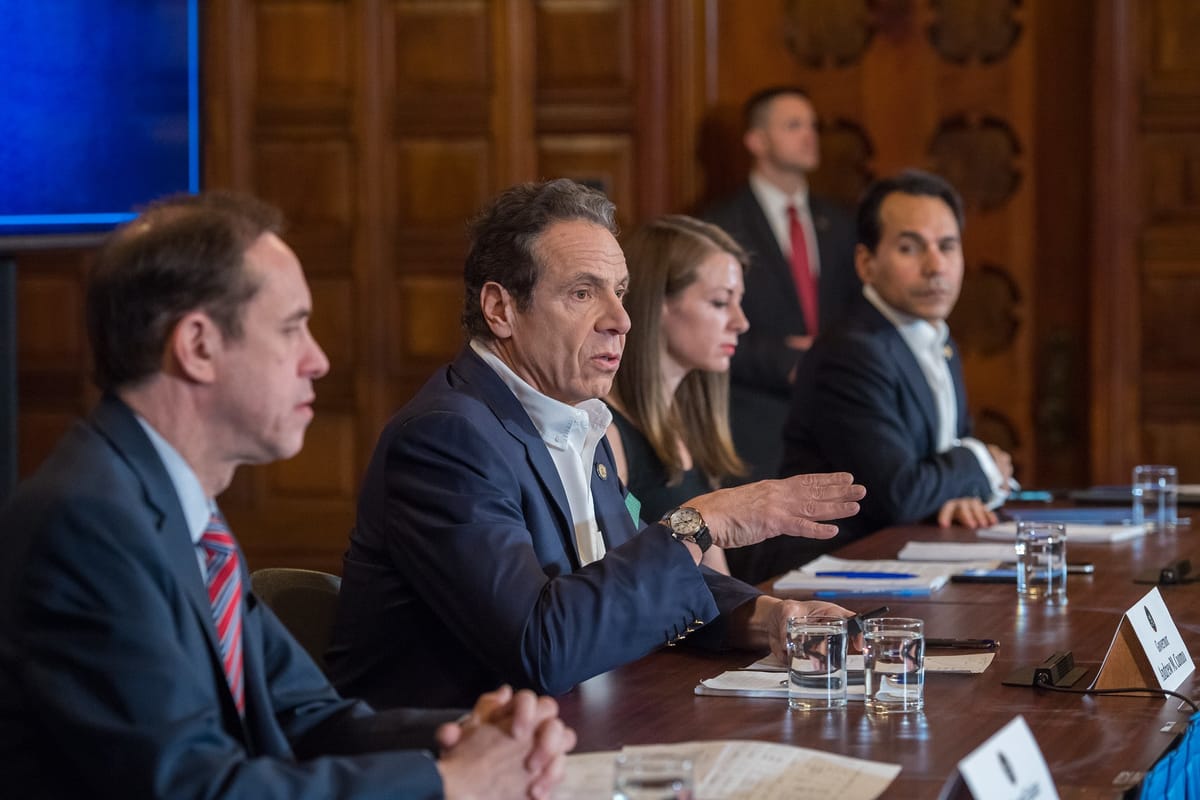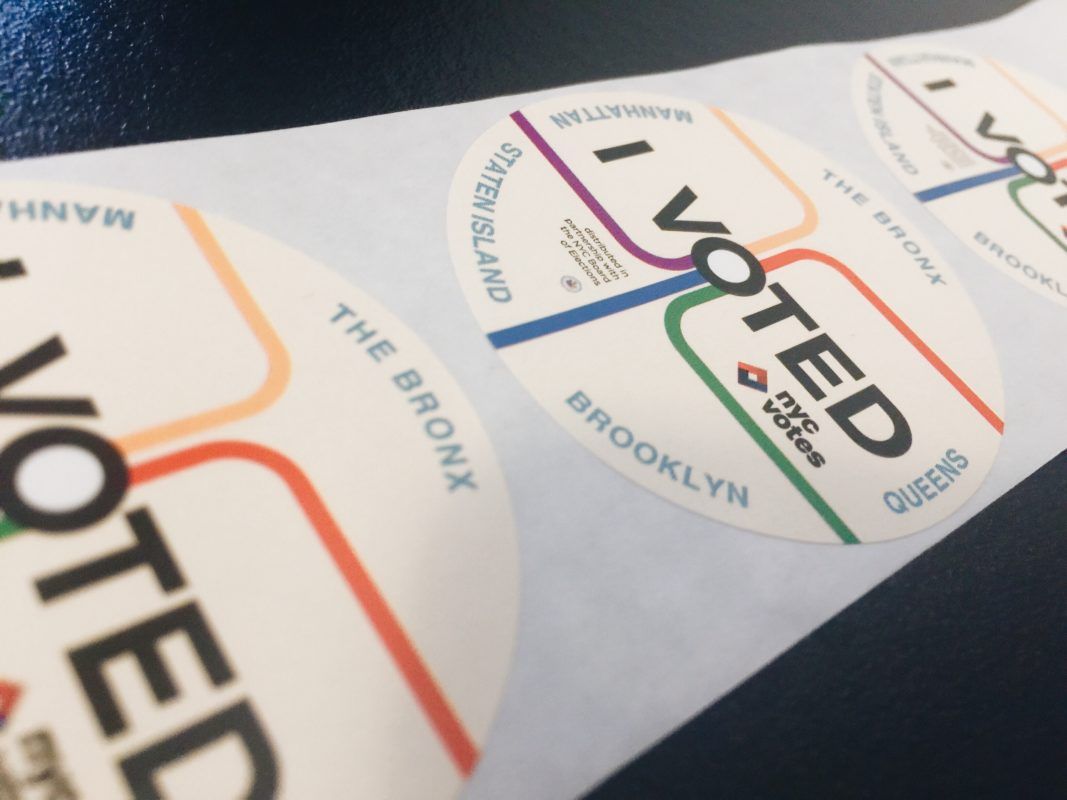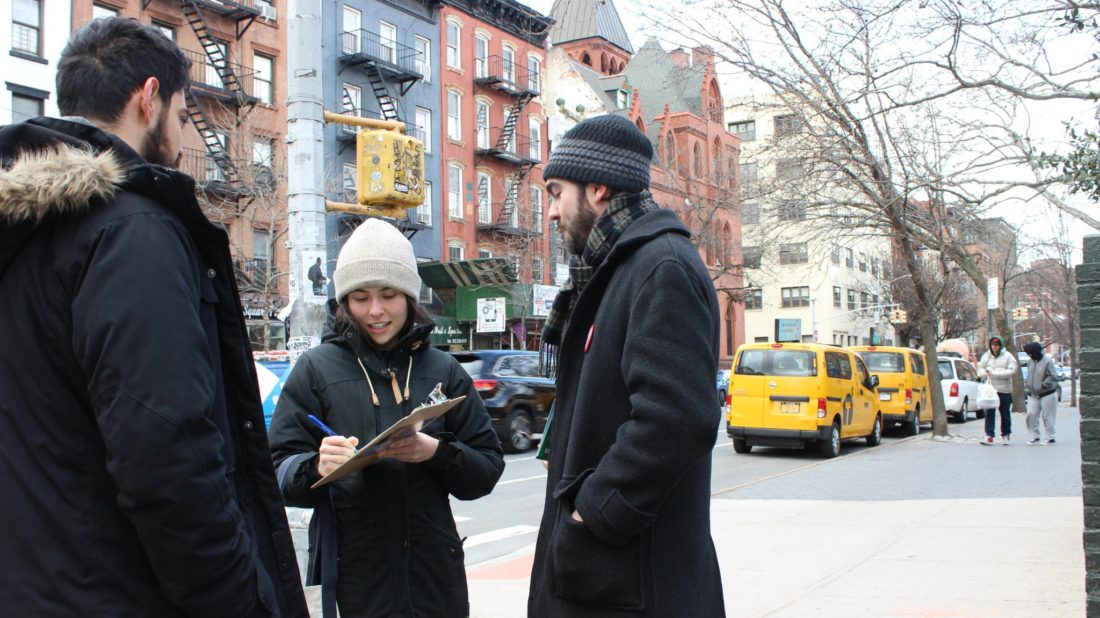As New York Shuts Down For Coronavirus, Should The April Primary Be Delayed?


The New York State presidential primary election is scheduled for April 28. That would be less than a week before the projected peak of the Coronavirus crisis in New York, according to predictions by Governor Andrew Cuomo earlier this week. Georgia, Kentucky, Louisiana, Maryland and Ohio have already pushed back their primary elections due to Coronavirus. Other states like Florida, Illinois and Arizona, which all held primaries on Tuesday, March 17, have opted to carry on as usual, despite CDC warnings.
March Special Election:
New York City Mayor Bill de Blasio has postponed a March 24 special election for Queens Borough President in response to Coronavirus. This decision was met with approval from the candidates involved. Governor Cuomo had signed an executive order making it easier for New Yorkers to vote using absentee ballots in the now-postponed Queens special election. This might indicate a willingness to take similar steps for the April election.
April Special Election for Council Seat for the 37th District:
There is a special election planned for April 28 — the same day as the presidential primary — for Rafael Espinal’s City Council seat in the 37th District, which represents Cypress Hills, Bushwick, Brownsville, Ocean Hill and East New York. He left the City Council to become the Executive Director of the Freelancers Union.
Espinal has endorsed Darma Diaz, a Democrat who currently serves as New York State Committee Woman and Female District Leader of the 54th Assembly District, which represents parts of Bushwick, Cypress Hills and East New York. Diaz could not be reached for comment.
Diaz has shifted away from in-person campaigning, but she is hesitant to call for a delay in the election. “Elections are a crucial part of our democratic system, and we should do everything in our power to ensure they continue as planned,” she said. “However, we are experiencing an unprecedented crisis that we still have not felt the full impact of. In the coming weeks we need to look at how cases have developed so that we can make a determination on what is best for the safety of New Yorkers.”
Sandy Nurse, an organizer and activist who is also running as a Democrat for the 37th District City Council seat, says the April election should be delayed.
“It does not make sense to have the election go on, as planned, unless we have a vote by mail system in place,” said Nurse. “Many voting centers are in public and/or senior housing centers. We cannot put these community members at risk.”
Nurse’s campaign has replaced all door-knocking and canvassing with phone banking and live videos.
Douglas Kellner, Co-Chair of the New York State Board of Elections, said he was in favor of moving the April 28 election to June 23, when another vote is already scheduled, reported the New York Times. “There’s no compelling reason to have the presidential primary election in April,” said Kellner.
April Presidential Primary:
Senator Bernie Sanders suggested postponing the March 17 primary elections in a CNN post-debate interview on Sunday, March 15. “I would hope that governors listen to the public health experts,” said Senator Sanders, “we don’t want gatherings of more than 50 people.”
Symone Sanders, a senior adviser to the Joe Biden campaign, refuted Senator Sanders’ suggestions in a different CNN interview. “I don’t know what Senator Sanders was talking about, but Governor DeWine said it’s safe in Ohio, so I encourage people to get out there and vote on Tuesday.”
June Primaries:
Primary elections for Congress, State Assembly and State Senate won’t be held until June, 23, but candidates for these contests are already adjusting their campaigns to minimize the risk of spreading Coronavirus.
New York State officials are weighing options for reducing exposure. Governor Cuomo has already taken some steps to make voting safer. He signed an executive order on Tuesday, March 17 to suspend candidate petitioning and reduce the signature requirement to get on the ballot by 30% — a step challenger candidates had been pushing for.
Peter Harrison, an insurgent Democratic congressional candidate for District 12, which includes parts of Bushwick, Greenpoint, Red Hook, Brooklyn Heights, Sunset Park, East New York and Williamsburg, said he wishes the change had come sooner, but is happy to see it in effect regardless.
Michael Carter, the co-campaign manager for Julia Salazar, the Democratic state senator for District 12, which includes parts of Bushwick, Cypress Hills, Greenpoint, Williamsburg, Bedford-Stuyvesant, Brownsville and East New York, says he supports postponing the primary election and that mitigating policies like increasing access to absentee ballots are not enough. “Not everyone is plugged in enough to know they can cast an absentee ballot,” said Carter.
The Salazar campaign has suspended all canvassing in response to Coronavirus. Instead of an aggressive ground operation, the campaign has shifted to an internet-based strategy. Online fundraisers, phone banking and endorsements have taken on a more important role in the campaign.
Harrison said his campaign has been forced to rapidly adapt to Coronavirus. “Just like everybody else, we’re adjusting to a totally different world,” said the candidate. “It’s hard to feel good about asking people for money in an environment like this, when a lot of people we’re calling are worried about getting sick, or their paycheck or their business closing.”

He considers postponing the presidential primary election just another sacrifice that needs to be made for public safety. He was supposed to marry his fiance on April 25, three days before the election. Now he’s rescheduling the wedding for the safety of his friends and family.
“Our focus isn’t even June 23 right now,” said Harrison referring to the date the election would ostensibly be moved to. “It’s how do we get our community members the resources they need.”



